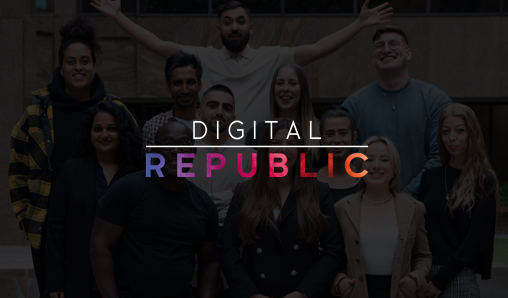
Why Does The Tech Industry Still Have A Gender Imbalance?
New analysis by Forward Role highlights the gender disparity in the tech industry and offers insights into why it is still male-dominated and how educators and employers can change this.
While it has long been known that the tech industry is lacking in female employees, with the gender pay gap, inclusion and diversity becoming front of mind for the media and employers alike, it is surprising that only 19% of people working in the tech industry are women. Women are underrepresented at all levels, but especially in senior management, with just 12.6% of board members in tech companies.
The UK technology sector is growing substantially, currently 2.6 times faster than the overall UK economy. It employs 1.1 million people and it was worth £184 billion in 2018. So why aren’t there more women working in tech?
While FTSE 100 businesses have achieved 30% female representation, tech companies are lagging behind at 12.6%. In addition, the industry is facing sector-specific skills gaps: more than 70% of technology employers have experienced skills shortages this year, and almost a quarter of these expect the shortage to greatly impact their recruitment.
Marketing, digital and technology recruitment firm Forward Role spoke to a number of women about their experiences within the tech industry. Grant Dove, IT recruitment lead at Forward Role, said: “With the digital skills shortage and strong industry growth, it’s now more important than ever to address the industry’s gender imbalance if we want to continue to grow, innovate and evolve.
“We all have to work hard to encourage more diversity and grow our industry into one that we can be really proud of as it changes and evolves. There will be many barriers to overcome in the next few years, but the future looks bright for women in tech.”
Education level disparity
Forward Role has found that the tech gender divide goes back further than just employment. It begins at an education level and more needs to be done to encourage girls to find tech subjects appealing. While there has been a shift in young men accessing traditionally female-dominated sectors, this hasn’t happened in those male-dominated industries, such as computer science, technology and digital. In fact, only 20% of those taking computer science at GCSE level are girls. While at university, this trend continues, with computer science having 13,085 more male students than female.
To combat this, UnionLearn has recommended that schools should promote apprenticeships as an option for all and challenge traditional gender stereotyping from an early stage:
- There should be more targeted support and careers guidance for young women from school age upwards
- There should be more taster courses and work experience for young people before they decide on their chosen apprenticeship
- There should be more visits for young women to male-dominated workplaces
Emma Grant, talent and skills manager at Manchester Digital heads up DigitalHer – an initiative set up to inspire girls and women to explore the careers available in digital and tech. She said: “Diversity is good for business and good for the wider society. One of the ways we can help make a change in the tech industry is by inspiring and empowering more young women to consider careers in technology – which is the reason Manchester Digital created its Digital Her programme.
“It’s essential we enable young women to make informed decisions about the subject choices and education pathways that could allow them to develop the skills and mindsets they need to succeed in our industry.”
Working towards gender equality
The tech industry is taking strides to improve the gender balance. This year, the European Commission plans to increase women’s participation in the information, communications and technology (ICT) sectors. However, there are still huge barriers facing women once they break into the industry. In 53% of tech organisations, men outnumber women by at least three to one, and the gender pay gap has stagnated over the last few years.
A recent survey by AllBright showed that 22% of female tech founders are overlooked by male investors. This is a common problem for women business owners in the tech industry and it leads to fewer women in senior manager and ownership positions in tech and digital.
Rosie Bennett, centre director at SETsquared, a tech business incubator based in the University of Bath’s Innovation Centre, is helping to devise a strategy to attract more female candidates. The incubator is choosing to work with organisations like Girls Who Code and WISE, trying out more targeted recruitment campaigns and encouraging more gender-balanced management teams with female mentors and advisors. The strategy appears to be working, with an increase in the number of applications from women from 5% to 11% in the last 12 months.
What does the future look like for tech?
Mariya Gabriel, commissioner for the Digital Economy and Society, is taking real strides to encourage women’s participation in the tech sector. She has highlighted three key areas that will facilitate an increase in the participation of women in the digital sector:
- Challenging stereotypes
- Promoting skills and education
- Advocating for more women entrepreneurs
Jacqui Bland, a software engineering manager from Broadstone Engage, thinks that the future looks bright, thanks to the ongoing support of male members of the community: “There’s no doubt that we need more women in tech. Getting into any male-dominated industry can be daunting for a woman, but the tech community is becoming increasingly aware of the gender gap. In my experience, there are more men than ever before that are choosing to be advocates for more women in tech.”
Progress is demonstrably being made with initiatives, encouragement and strong role models for girls and young women. Over the next few years, we should begin to see the gender divide reduce in the tech and digital industries, leading to a better environment for all.
Originally posted by Relocate Editorial.
If you enjoyed reading this post, you might find this article interesting too.
Follow us on our LinkedIn and Twitter to stay up to date with the latest news in the digital data-driven ecosystem
Digital analytics, optimisation, data science or programmatic expert, and looking for a job?
Check out our latest live vacancies here
Digital agency looking to expand your team with top-tier talent?
Send us your jobs here
Get in contact with us!


